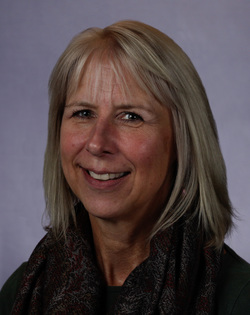|
Jesus said to them again, “Peace be with you. As the Father has sent me, so I send you.” When he had said this, he breathed on them and said to them, “Receive the Holy Spirit.” John 20:21-22
We contemporary churchgoers don’t face the kind of adversity that the first disciples faced: We live in a society that gives us freedom to practice whatever religion we see fit. We seldom have religious or political adversaries to contend with in our American culture. But the truth is that while we are free to choose how to express our faith, we are not exactly free to share that faith. Faith, and particularly, faith in Christ, is culturally understood as private. That means that while we may not have hostile opposition trying to do us harm, we may face the opposition of benign disinterest. We may be free to express our faith—within the walls of the church, and behind the ladle at the soup kitchen—but we are not truly welcomed to share it with others. People who don’t go to church are uncomfortable when we try to share our faith with them. Maybe the topic just feels too personal. Or maybe the other truth is that we are so uncomfortable trying to share our faith, that we end up making others uncomfortable too. But, the fact remains that Jesus nevertheless sends us: “So I send you.” And, if we hope to take our Easter faith seriously, it’s important for us to know what we can do to be ready to meet those to whom we are sent. On the first Saturday in May your Council and a dozen-or-so other leaders will meet to talk about exactly that: With whom are we called to share the good news that God is at work breathing resurrection life into the world? And how can we best be ready to welcome them? Here are some thoughts…. Do you know any unchurched people? If the only people you associate with are church members, then this congregation may have a challenge. Church should be a place to develop deep and abiding friendships—and I know that Calvary has been the soil in which many important relationships have been cultivated. However, if all of our energy is directed inward (developing and refining ministries within the congregation and nurturing congregational friendships), then our members won’t have time or ability to get to know unchurched people. And if we don’t know unchurched people, how can we hope to have them feel welcomed here? Are we ready to be non-judgmental? People who don’t frequent church speak a different language than people at church speak. They look at life differently. But change isn’t a precondition of baptism or church membership; change is something that happens as people grow in relationship to Christ. Jesus was ingenious in the way he approached people with very different life circumstances and beliefs than his, and loved them in a way that motivated them to change for the better. Are we ready to love rather than judge the unchurched? Living with questions. We live in a world that raises more questions than we may have good answers for. We also live in a church that has been way too eager to give easy answers to tough questions. Are we ready to listen more and answer less quickly? Are we able to embrace people’s difficult questions, and by doing so embrace them? Being honest about struggles. One of the most profound memories from when I was a teenager was hearing my pastor admit that he struggled in his faith. His honesty helped me to understand that I could struggle and still be part of the community of faith; that the church isn’t comprised of perfect people, and we know as much. Such honesty makes the church attractive to those who know struggle already, and know they need room for it in a place of worship. Dump all assumptions. If we think that newcomers will walk through the doors of the church with a basic understanding of Christianity, or that they must “master” the basics before they become part of the fold, we will need to rethink that. Newcomers may know no more about Christianity than you know about Taoism. If our church hopes to grow, the question is not whether but how we will help newcomers to access faith within our community. Embrace flexibility. If we hope to sustain new Christians in our midst, we will need to do more than host a rousing welcome and initiation into life at Calvary. Growth in faith is never “finished.” The more adaptable we are as a church community—particularly in our strategies for welcoming unchurched people—the better chance we will have of serving a changing community. Having said all that, I invite your prayers and thoughtful consideration of how you might help to make Calvary a place of welcome to newcomers as well as those already here. Having served with you for 13 years, I can honestly say that this congregation has demonstrated an amazing amount of grace, adaptability, and resilience in the face of change. And I look forward to taking the ongoing journey toward being a community that welcomes others readily and makes Calvary a place of grace for all who enter here. Your sister in Christ, Pastor Lori Cornell
1 Comment
|
Rev. Lori A. Cornell
Calvary's Pastor Jake Schumacher
Intern Pastor Archives
March 2017
Categories
All
|
Location |
CONTACT UsCalvary Lutheran Church
2415 S. 320th Street, Federal Way, WA 98003 (253) 839-0344 phone (253) 839-0345 fax [email protected] Office Hours: Monday - Wednesday & Friday 11 a.m. - 4 p.m. |


 RSS Feed
RSS Feed
